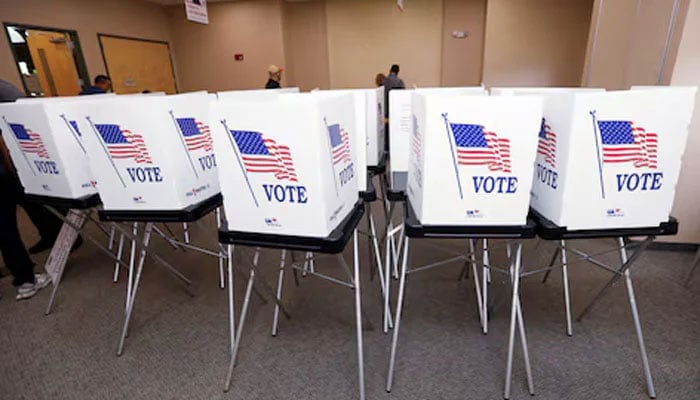A most important election
The US presidential election takes place every four years –on the first Tuesday of November, whatever the day and date might be. The next one is due in five days, on November 5 this time.
And it is the world’s most important election because of the role America plays and the impact it has on many countries around the world, especially on their economies.
In this particular case, it is a very important election for various reasons for countries like Pakistan, which have depended heavily over the years – and continue to do so – on military aid from the US and on financial aid from lending institutions which are more or less on the beck and call of the world’s largest economy (not least since it is the largest contributor to their funds which are lent out to developing countries).
While Pakistan’s relationships with China and now Russia have been solidifying, the US still plays a major role in decisions made in Pakistan. For starters, it is Pakistan’s largest trading partner with annual bilateral trade in the region of $10 billion and with Pakistan enjoying a surplus. There is also of course the military aid and assistance component, in which despite Pakistan’s increasing – and successful – efforts to diversify with partnerships with other countries, it is still reliant on America, especially with regard to spare parts.
There is a perception among many Pakistanis that most important decisions made in the country need to have American approval, and that these include decisions like who will be the country’s next prime minister to who will be the next army chief and so on. Of course, whether this is actually the case is irrelevant – in today’s day and age, it is the perception that matters.
To that end, we come to the present polarised state of politics in Pakistan. On one side are the supporters of Imran Khan, concentrated in Punjab and Khyber Pakhtunkhwa, who have seem to bought the narrative propounded by the former prime minister and spread far and wide by his social media army that his dismissal from office had American approval and that a senior US government official played a key role in orchestrating it.
Of course, that unproven allegation has not stopped Imran Khan and his party from writing to and pleading their case with members of the US Congress to help call for his release from the Pakistan government. Members of the PTI in the US have been consistently lobbying with the US Congress for this singular purpose and have also tried to get their message across to the Biden administration. They have gone to the extent of linking continuation of US military aid to Pakistan with Imran Khan’s release and the rehabilitation of his party.
This course of action, as expected, greatly angered those who matter in Pakistan and in fact solidified their resolve to not show the former prime minister any leniency – but that is another story.
Coming back to the US presidential election, the PTI and what some see as its proxy, the Pak-American Public Affairs Committee (PAKPAC), have endorsed Trump. They have chosen to ignore his strident anti-immigrant and anti-Muslim stance, where he has said he will send all illegal migrants back immediately through deportation orders. And they have also ignored his stance on the Middle East.
For PAKPAC, as for the PTI and its supporters, the issue is simple. They believe that Donald Trump had a good equation with Imran Khan when the latter was prime minister (though there is little actual evidence to suggest that either way). Their view is that once he is elected as president again, he will set in motion events that will lead to Imran Khan’s release from prison and even re-election as prime minister. On what basis they think this to be the case, only they can answer that question because it is difficult to say with any degree of certainty that the US president – regardless of who that may be – would accord any priority to such a course of action.
This takes us to the point that there are some stark similarities between Pakistan and the US. One of the top contenders for the post of president has an army of followers who blindly go wherever he goes, who don’t care about his conviction for paying off a porn star to hide an extramarital affair, or him refusing to disclose his tax records, or engaging in business practices for which he has been accused of tax evasion and for goading his supporters to attack the building that houses America’s legislature.
They also don’t care about the fact that their candidate who says he speaks for ordinary Americans is one of the richest Americans himself and that his key supporter (who also speaks for a new America for all Americans) is the world’s richest man and fired thousands when he bought Twitter.
To supporters of a cult, such things are trivial and don’t matter much – as long as the goal of electing the cult leader is realised, and the means to that end can include a vast network of misinformation, disinformation, propaganda and outright lies.
The writer is a journalist based in Karachi. He tweets/posts @omar_quraishi and can be reached at: [email protected]
<!–
–>
<!–
–>
<!–
–>



